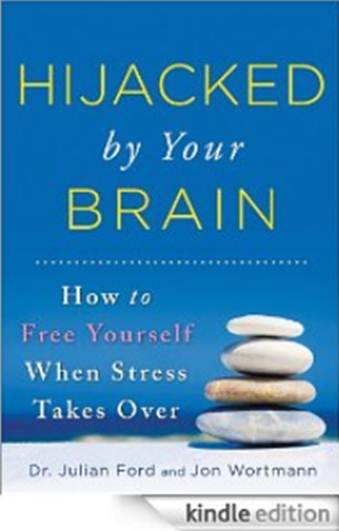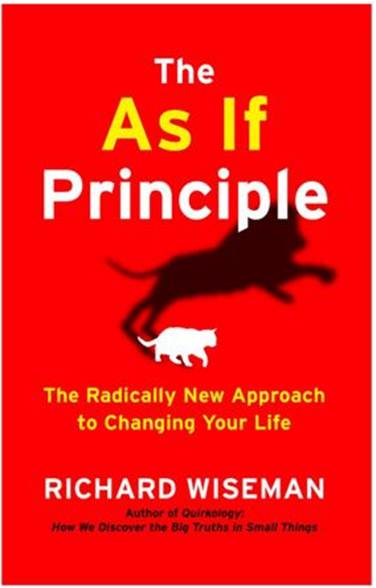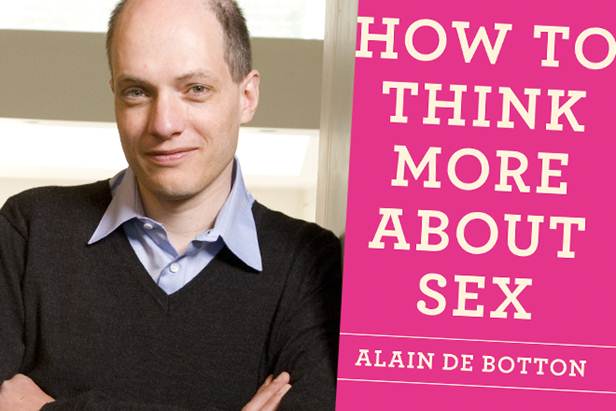A PTSD expert explains how stress sets off
your brain – and how you can learn to defuse it
A central irony of modern life is that we
spend incalculably less time dealing with life-threatening situations than our
forebears on the savanna did, but our daily stressors have proliferated
prodigiously. In Hijacked by Your Brain (Sourcebooks), clinical psychologist
and professor Julian Ford (with corporate-communications coach Jon Wortmann)
seeks to share with us what he’s learned from working with patients who suffer
from post-traumatic stress disorder. Ford contends that as we convert physical
and nervous discomfort into emotional responses, alarm go off in our reptilian
“survival brain” that urge us to act without due reflection. The advice here:
Don’t just do something – stand there. Allow your “learning brain”, your
prefrontal cortex and hippocampus, to engage memory and self-reflection and
seek more creation and positive ways of dealing with stress alarms. (Hint:
Don’t scream at your kid, genius!). “It’s a skill to choose to switch your
focus” when under the gun, the authors write – one that must be learned and
cultivated.

In
Hijacked by Your Brain, clinical psychologist and professor Julian Ford seeks
to share with us what he’s learned from working with patients who suffer from
post-traumatic stress disorder.
Model behavior
Our body language reflects our moods and
emotions, right? But what if it works the other way around, as psychologist
Richard Wiseman proposes?
I believe in mind over matter, but I’m also
a behaviorist junkie who’s perpetually jonesing in the quick-fix world we live
in. I’m of the faith that amending how you conduct yourself and applying
behavioral-modification techniques to certain situations can enhance your life.
(I’ve learned never to respond right away to a nasty e-mail, for instance:
Acting on my first impulse might make me feel better, but it won’t bring me
closer to achieving anything constructive). So when I picked up The As If
Principle: The Radially New Approach to Changing Your Life (Free Press), the
latest advice book by prominent psychology professor and popularize Richard
Wiseman (The Luck Factor), I was as eager as one of Pavlo’s dogs. (Can you hear
the bell ringing?)

When
I picked up The As If Principle: The Radially New Approach to Changing Your,
the latest advice book by prominent psychology professor and popularize Richard
Wiseman, I was as eager as one of Pavlo’s dogs
Wiseman cribs his premise from philosopher
William James’ theory that our outward actions shade how we fell – that
changing our behavior can alter our thoughts and emotions. Common sense
suggests the reverse: When I feel happy, I’m wearing a big grin. Actually,
Wiseman contends, when you smile, as the saying goes, the world smiles with
you. Rather than trying to think positive thoughts when your heart’s not in it
– and then felling guilty, to boot, when you fail to glow – consciously fake it
till you make it: Behave as if you feel all aglow. Need to calm down? Act like
a calm person –model that behaviour. Need to summon some willpower? Simply
tense your muscles and go about doing what you have to do. (No wonder my
massage therapist thinks I’m so self-controlled). A graceful, flowing handshake
makes people feel closer to you. Create a romantic setting, hold his gaze with
yours, and you’ll increase your own feeling of attraction (not to mention his).
Want more confidence? Wiseman suggests striking a power pose, a semaphore
signal of resolve. He insists the as-if principle can help you get motivated,
fall in low, avoid anxiety, stay thin, and be more joyous. That’s a mighty big
promise to hang on a few behavioral tweaks and the short exercises Wiseman has
devised to help you deal with procrastination, boost your creativity, and
analyze your character.
If only it were that simple. My favorite
suggestion was Wiseman’s voodoolike recipe for mourning a relationship, as I
was in midbreakup mode while reading his book. As he advises, I wrote down my
grievances, ripped up the paper, put the pieces in an envelope, tore it up, and
set it on fire. But I’m still angry, and my heart is still broken. I guess I’ll
just have to get out of the house and slap on that smile – but I find myself
wishing my big bowl of positivity were stuffed squarely into a lithium-infused
cupcake or shaken and poured into a martini glass. As if…
The remembrance of flings past
Essaylist Alian de Botton tries his hand at
getting cerebral about sex: Maybe it wasn’t such a good idea.
How to Think More About Sex (Picador) is a
wonderfully provocative title for Alain de Botton’s latest musings. It sure got
me thinking about sex, and, finally, about the audacity of telling anyone else
how to think about sex. In more repressive times and cultures, people need to
hear, “You’re not going to hell for this, so please enjoy your body touching
other people’s bodies” – but that’s all the thought instruction anyone
requires.
How-to guidance does make some sense in the
doing of rather than the thinking about: There are things one hadn’t thought of
that turn out to be fun. But even there, people talking is better than a reader
reading. (Socrates’ preference for the back-and-forth of conversation over the
written word is particularly apt in matters sexual). It’s good to talk to
friends, both for body-part logistics and for reassurance: “He wants to do
this, but the idea makes me queasy. Have you ever? Really? You like it? You
mean when he’s sort of…and you’re… Oh, so you all wait until…and then you…Hmmm.
So that’s rubbing against that while… And you can have an orgasm that way? Oh.
Huh. Maybe I should try that”.
It’s scarier, but even more important, to
talk to your lover about specifics. Saying “That thing you just called gross?
Actually, I sort of love it” makes the speaker rather vulnerable, and a
reasonably kind person hastens to assure the speaker (“Oh, not gross exactly,
but more unfamiliar”) and then maybe respond with his own confession. This
shared vulnerability and opening up makes sex more adventurous, pleasurable,
and connected – the “country of two”. Enjoying sex is simple in the general
sense, and it becomes complicated only as you zero in on one variegated
snowflake of a human being. The two of you are the best experts in the sex
you’d like to share.
In How to Think More About Sex, de Botton,
rather astonishingly, ignores the issues of reciprocity, receptivity, and
communication altogether. Instead, he enlists his readers in a review of his
own sexual desires and resentments, suing the royal we: “We” experience sex as
“ fundamentally disruptive, overwhelming, and demented force… bound up with
cruelty, transgression, and the desire for subjugation and humiliation”, he
announces in his introduction.

How
to Think More About Sex (Picador) is a wonderfully provocative title for Alain
de Botton’s latest musings
He assumes that we all find ourselves
helpless before the magnetic force of Internet porn, and he praises
fundamentalist religions for understanding how desire can override reason and
decency. Then he tells us what we think of adultery: It is inevitable that we
will grow weary of our spouses and then meet a hot 25-year-old woman on a
business trip. Would it not be a sin to deny ourselves the life-affirming joy
of an affair? While cheating “grabs the headlines”, does one not betray a
marriage, too, by “seeming distracted, being ill-tempered, or simply failing to
evolve and enchant”? De Botton also explores the wide range of what is
considered sexy in a section called “Scarlett or Natalie” – as in Johansson or
Portman.
De Botton is clearly not speaking for any
women – and, one hopes, not terribly many men. He’s a smart guy, and so I have
to guess that the book is simply a provocation, a mockery of the self-help
genre, and a dig at humanist/feminist sex positivity. I doubt he simply means
what he’s written, because if one hopes for fulfillment, joy, love – really any
of the nice things that sex brings along to the party – what one takes away
from this strange little book is exactly how not to think about sex.